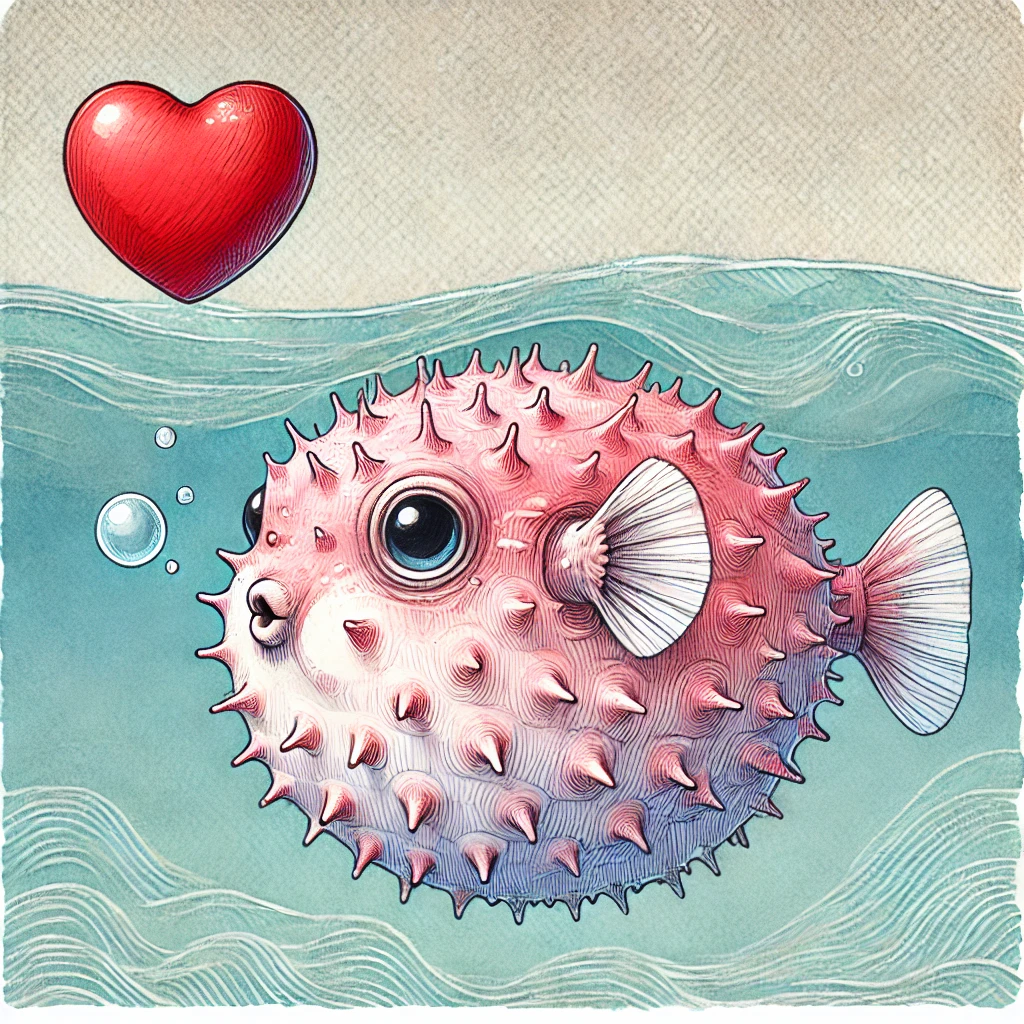Be Gentle With The Puffer Fish
I love pufferfish. They are adorable to look at, from a safe distance at least. When they’re frightened, they puff up like a balloon by pulling water into their bodies. They do this because it makes them look bigger, and sometimes another fish will think twice if the little fish they were eyeing for lunch suddenly expands to 5 times its original size. It also makes their spikes that stick out like hedgehog quills more obvious.
They are also incredibly toxic. If another animal tries to eat them or a human brushes up against their quills while scuba diving, there is a high likelihood of death. The poison on their skin makes them taste bad to other fish; the amount of poison on one small fish could kill up to 30 adult humans. So, you know, not a great pet.
Pufferfish aren’t evil, they’re just living their little pufferfish lives. They don’t want to puff up. It’s not intentional, it’s a reflex. It’s a trait that has been evolved to make them safe in the face of danger. Are you following my analogy?
Of course, the pufferfish I’m most concerned about in my life are kids from hard places (kids adopted from foster care who faced early childhood trauma). For many, they’ve adapted to keep them safe. It’s a maladaptive behavior that doesn’t work outside the dangerous environment they developed it in. However, because their brain developed to protect them when they were unsafe, it can take a long time for their minds and bodies to catch up with the information that tells them they are safe.
My kids are precious. They can also be dangerous to themselves and others if they feel threatened. They yell to try and make themselves seem bigger. They become physical when they’re told to do something they don’t want to do. Perhaps the laundry I’m asking them to put away isn’t a pile of venomous snakes, but they might fight me as if it were. They seem to register, “I don’t want to do the thing,” as, “I might actually die if I do the thing.” Poof. The cute, wide-eyed, lovely little child I was talking to is suddenly a venomous spiky balloon.
While they are young and small, the venom they put out isn’t as dangerous to anyone. If I can’t get them to understand that I am not a threat, or that unpleasant things aren’t the same as dangerous things, I’ll have a big problem later. So, I spend a great deal of time trying to, for lack of better expression, desensitize them to things they don’t like such as picking up around their room or finishing their chores.
When one of my childrenwas asked to do a chore she hates, I offered to do it with her. I promised her rewards, breaks, snacks, the whole nine yards, but she had gotten the idea in her head that the task would take all day (it didn’t), and that she wouldn’t get to play the game she wanted since her sisters would be playing it (she would have, they weren’t).
So, instead of us tidying up her bedroom floor so I could vacuum, I was treated to a 45-minute tantrum that triggered her sisters into tantrums, and not much got done that needed to. It was a long day.
We did, eventually, get the tasks done, and after some discussion, apologies, and a walk to work their muscles a bit, everyone was allowed some electronics time, but it took a while to get there. I had to be careful to not make a big fuss over her or her sisters not doing the chore perfectly. Too many comments about how it wasn’t done just right would swing the pendulum into a place of self-loathing for them and they would in turn lash out at me.
If I allow myself to, I can feel angry and resentful. Why shouldn’t they do chores without complaining and whining about how unfair it is? Why shouldn’t I be able to do my work on the computer while they are doing something else without hearing how it wasn’t fair that I got electronics while they were “so bored”? I can start to resent these kids who are the way they are from no fault of their own. It’s frustrating knowing there are these things that most people can do without question that my people struggle to do with coaxing and cajoling.
Sometimes, their actions and words hurt.
I need to remember they didn’t choose this. They didn’t ask to be abused early on, neglected, put into foster care, and adopted. They didn’t ask for their brains to be wired in a way that makes every unpleasant thing into a life-or-death situation. While they must adapt to the world they live in now, so they can survive it on their own eventually, it’s going to be slow going for a while.
For the time being, I do what I can to make them feel safe. That might look like coddling or spoiling to some people, but it isn’t. As long as I remember my children’s needs and am gentle and careful, I think we’ll be okay.





